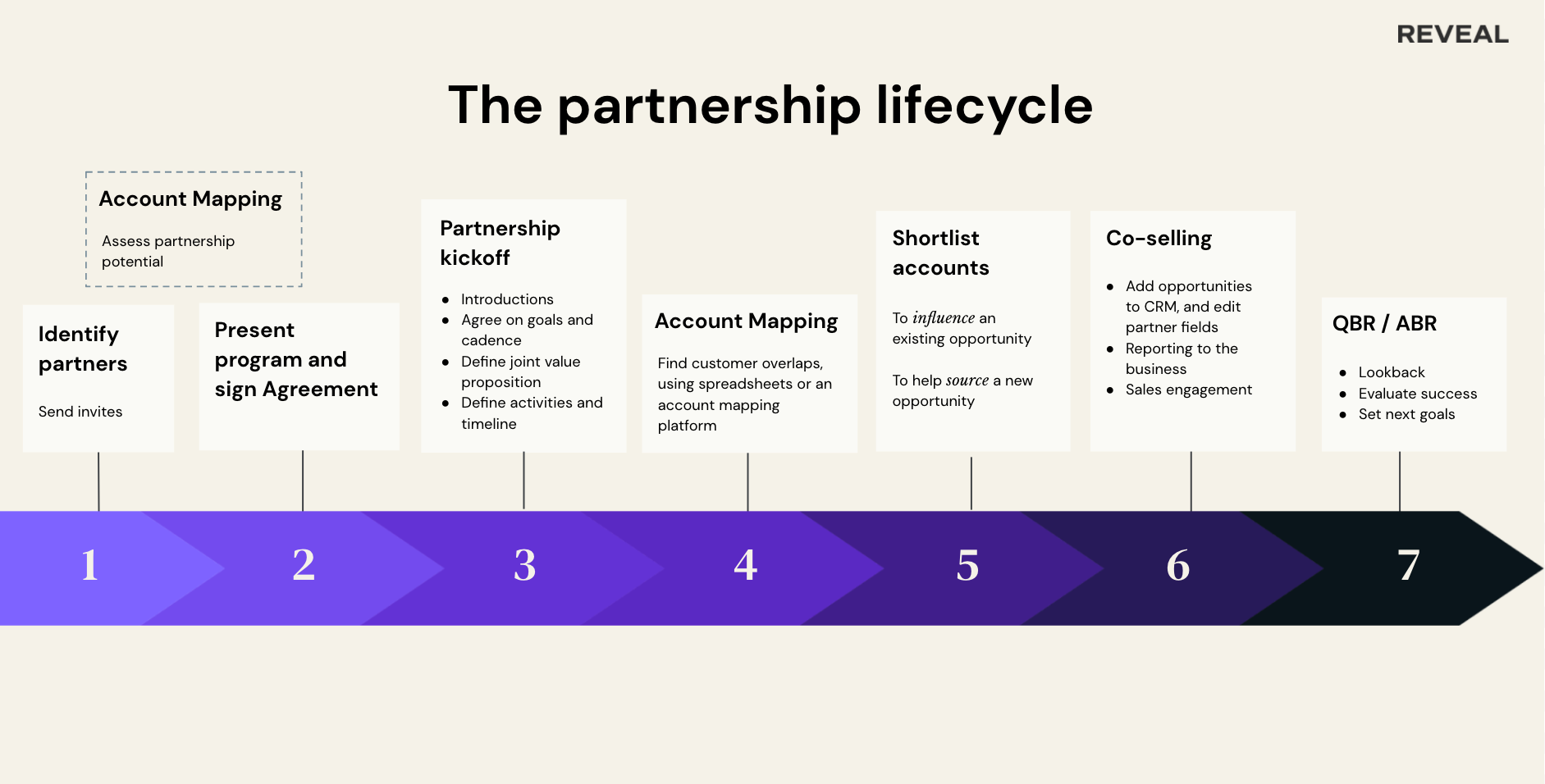Business-to-business (B2B) companies are generating an increasing percentage of their revenue through partner ecosystems. In a 2018 Accenture survey, 76% of business leaders said that current business models will be unrecognizable in the next five years, with ecosystems being the main change agent. But despite their growing importance, businesses haven’t necessarily adopted technology to foster partnerships, instead relying on spreadsheets and lengthy virtual or in-person meetings.
Perhaps as a result, business ecosystems — while profitable — have a high failure rate. Research by BCG found that fewer than 15% were sustainable in the long run. But it doesn’t have to be this way. That’s according to Reveal CEO Simon Bouchez, who alongside Gautier Machelon, Perrine El Khoury, and Alex Sadones aims to build a platform that allows B2B companies to more easily identify sales opportunities with their partners.
With customers including Qualtrics, Tealium, Contentsquare, and Vonage. Reveal today announced that it raised $50 million in a Series A round led by Insight Partners with participation from Eight Roads, Chalfen Ventures, and Dig Ventures. The capital brings the startup’s total raised to about $54 million.
“Organizations create 2x more value when selling to a partner customer,” Bouchez told TechCrunch via email. “But most of the time, companies don’t know how to capture this value and don’t invest in partnerships. Partnership leaders still don’t have a clear seat at the revenue table.”
Before launching Reveal in 2020, Bouchez was the CEO of Multiposting, an HR tech startup, until 2018, when it was acquired by SAP. Sadones was the CTO at Multiposting, while Gautier cofounded employee sourcing and hiring platform Work4. Khoury was the director of business development at Work4.
Initially, Reveal, which was founded as Sharework, was focused on automated sales account mapping — i.e., the process of cataloging the people that work at a particular target account. But in 2020, the startup began to broaden its product strategy, targeting marketers seeking to create and convert sales leads.
Some might argue that Reveal’s product falls into the category of ecosystem management, or tools to navigate and manage B2B partner ecosystems. But Bouchez argues that Reveal goes a step further by involving sales and marketing teams in the process for lead generation, sales enablement, and ecosystem expansion.
“We believe we have created a new category: a collaborative growth platform enabling companies to leverage their ecosystem to accelerate growth,” Bouchez said. “Our closest competitor would be an Excel spreadsheet or companies not yet tapping into this growth potential. Of course, we are expecting competitors as our space grows and attracts investment from top investors, and many companies — like Partnerstack, Crossbeam, and Workspan — are growing fast.”
Reveal ingests data from existing customer relationship management systems to identify common sales accounts as well as potential new leads. Algorithms attempt to identify the top partners to add to a company’s ecosystem, even if the company isn’t directly connected to them.

Image Credits: Reveal
Within the platform, ecosystems are composed of partners in the same industry, targeting the same customer segment, or selling a complementary product. The idea is that companies can connect with a partner’s account owners through Reveal to get introductions to key decision makers.
Throughout the process, using proprietary methods (Bouchez declined to go into detail), Reveal attempts to quantify the ecosystem influence on a company’s overall sales pipeline and revenue.
“Reveal … allows partnership professionals to quickly identify common customers and prospects with partners to generate more business opportunities,” Bouchez said. “Users [can] discover new relevant partners across the Reveal network.”
Reveal claims that its algorithms — which process more than 200 million customer relationship management records from the company’s over 4,500 customers — are accurate, but it hasn’t conducted outside testing to verify this. Reveal is more transparent about its data collection and retention policies, claiming to not store personally identifiable information and delete customer relationship management data “as soon as the user requests it.”
“Security and compliance has been a top priority from day one to allow our users to trust us with sensitive and important data in full confidence,” Bouchez said.
Reveal’s future plans include tripling its 40-employee headcount (within the next 18 months), investing in product development, and expanding its online learning hub for partnership professionals. Over the long term, Bouchez hopes to build the largest network of “connected companies,” with the tentative goal of eclipsing 20,000 companies by the end of 2023.
“Reveal is quickly becoming a leader in collaborative growth, an emerging category that integrates into a company’s customer relationship management system and serves as a bridge to partner customer relationship management systems,” Insight Partners’ Brad Fielder, who plans to join Reveal’s board, told TechCrunch in a statement. “Reveal allows sales teams to identify new opportunities and utilize partner connections to close deals like never before.”
No comments:
Post a Comment